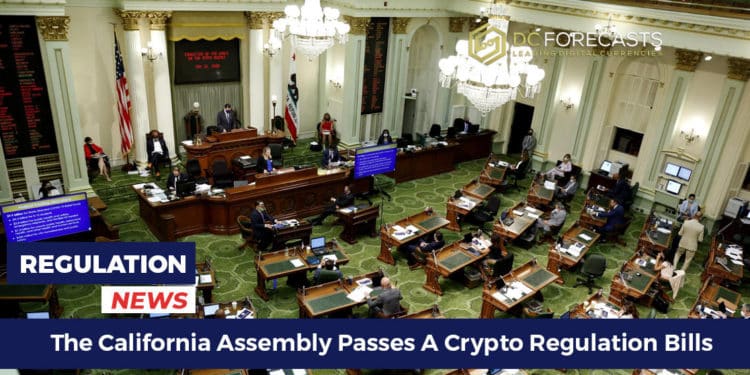The California Assembly passes a crypto regulation bill that will require bank-issued stablecoins. This is similar to the New York’s BitLicense, and has been very criticized by the industry stakeholders.
California Gov. Gavin Newsom is scheduled to sign a newly approved measure requiring digital asset exchanges and other cryptocurrency businesses to seek a license to operate in the state.
The Digital Financial Assets Law, called “BitLicense” in California, is modeled after New York’s BitLicense law, which went into force in 2015. California’s proposal, if approved by Democrat Gavin Newsom, will take effect in January 2025. The California Assembly passes a crypto regulation bill that may start a wave of regulation in the US.
“While the newness of cryptocurrency is part of what makes investing exciting, it also makes it riskier for consumers because cryptocurrency businesses are not adequately regulated and do not have to follow many of the same rules that apply to everyone else,” Assembly Member Timothy Grayson (D-Concord), the bill’s sponsor, said in a prior statement.
Among the criteria is a prohibition on California-licensed organizations dealing with stablecoins, which would be phased out in 2028 unless the stablecoin is issued by a bank or is regulated by the California Department of Financial Protection and Innovation. This is similar to a proposed (but never passed) bill in the United States Congress that would require stablecoin issuers to obtain a bank charter.
Another stablecoin-related provision in the bill would require stablecoin issuers to hold assets worth “not less than the aggregate value of all of its outstanding stablecoins issued or sold in the United States.” Furthermore, the legislation mandates that the total market value be computed in conformity with widely accepted accounting principles in the United States (GAAP).
The Financial Accounting Regulations Board produces a standardized set of accounting rules, standards, and processes known as GAAP (FASB).
According to the Blockchain Association, an industry trade group, the measure would “create myopic and unhelpful limitations that will hamper crypto entrepreneurs’ ability to function and drive many out of the state.”
This is California’s second effort to establish a “BitLicense” system. The first, in 2015, failed and was put on hold due to objections from a state lawmaker.
The measure earned 71 yes votes and 0 nay votes in California’s assembly. Nine assembly members abstained from voting. The measure earned 31 yes votes and six negative votes on the Senate floor, with all six no votes coming from Republican senators.
The governor, Gavin Newsom has until the end of the month, September 30, to sign the bill or to veto it.
Read the latest crypto news.
DC Forecasts is a leader in many crypto news categories, striving for the highest journalistic standards and abiding by a strict set of editorial policies. If you are interested to offer your expertise or contribute to our news website, feel free to contact us at [email protected]
























Discussion about this post